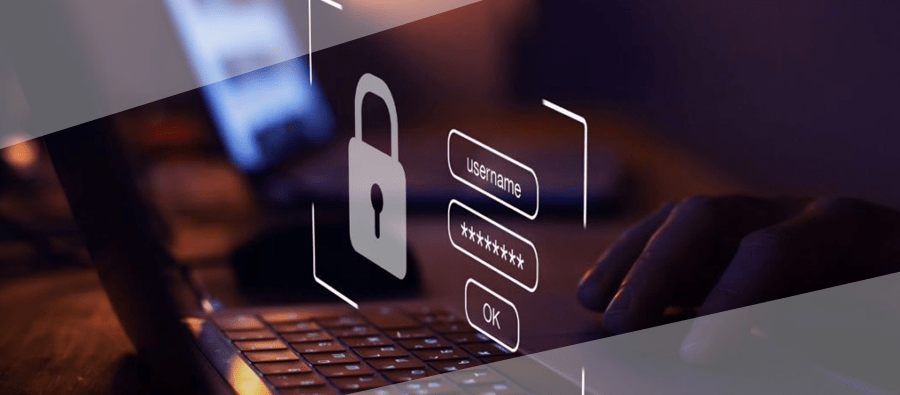What would you consider to be the most dangerous place on Earth? Death Valley? Snake Island? What if I told you that it is actually right in front of you, maybe even in the palm of your hands, and you most likely visit everyday? The most dangerous place in the world is… (drumroll)… the internet.
Your business is spread all over the internet with countless people having access to it, and there are many hackers out there who want to exploit it. They will do anything and everything they can to access your private data and spread it – whether it’s through malware, phishing, or whatever the case may be. It is up to you to protect yourself and your business from these malicious cyber attacks.
According to betanews.com, “In 93 percent of cases, an external attacker can breach an organization’s network perimeter and gain access to local network resources.” Hackers are able to gain access to companies’ private information a whopping 93% of the time! Because of this, thousands of businesses are hit by cyber attacks every week, even the biggest names in the world. It is imperative that you do every possible thing to boost your cybersecurity.
1. Create Strong Passwords
As obvious as it may seem, I have to start by saying that it is absolutely critical that you use strong passwords for any social media accounts, accounting software accounts, website logins, etc. Nothing else you do to boost your cybersecurity will matter if you use a weak password that a hacker can easily guess. You should never put your name, your company’s name, or any obvious dates in your password. For example, let’s say you started your company Jill’s Jams in 2007. If your password is JillsJams2007, you are at an extremely high risk of cyber attacks.
In order to create a strong password, most platforms recommend using at least 8 characters, capital and lowercase letters, numbers, and special characters such as dashes, or exclamation points. Once you create strong passwords for all of your accounts, you are one step closer to having strong cybersecurity.
2. Utilize Two-Factor Authentication
Two-factor authentication is one of the best, simplest ways to boost your cybersecurity and protect yourself from hackers. Instead of simply logging into an account with only a username and password, you will be required to verify your login request. Depending on the platform and the device in use, you will verify the request by entering a code sent to your phone or email, clicking a link that was sent to you, or by having your face or fingerprint scanned.
Hackers use bots that sort through countless combinations of characters to figure out your username and password. Without 2FA, a hacker will be able to access your account with relative ease. With 2FA, a hacker would also have to retrieve your verification code by attempting to phish it from you.
3. Improve Your Website Security
I cannot stress how important it is to have a solid website security plan in place, not only to keep your company’s data safe, but also to protect your website visitors’ data.
Here are some of the first things you need to improve your website security:
SSL
Every website should have an SSL certificate, which essentially authenticates a website’s legitimacy and enables an encrypted connection. It keeps data secure and prevents hackers from attacking your website.
Some old school developers may tell you that an SSL certificate is not necessary depending on the type of website you have. This is absolutely FALSE. SSL certificates are not only used for security purposes, but are also read by search engines to boost your SEO ranking. If a search engine reads that your website does not have an SSL, they will immediately deem your site untrustworthy, no matter how beautiful and well-built it may be. On top of this, your website visitors will be given a warning before accessing your site. You also will not be able to add your website link to most social media platforms. In conclusion, make sure your website has an SSL certificate by either purchasing one or using a hosting platform that provides one within the hosting package. At Pulse, we recommend GoDaddy or WPEngine.
Firewall
A web application firewall (WAF) is built to filter through traffic and block any potential threats that may attempt to access private data. It scans for potential viruses, malware, and hackers – acting as a wall guarding your castle (your website). Without a firewall, your website is much more vulnerable to cyber attacks, and although it is not 100% foolproof, it is highly recommended for every website to have one in place.
CAPTCHA
CAPTCHA is a system that determines whether a website visitor is a human or a bot. You know how some websites give you a group of images and ask you to click on the ones that have a certain object in them? That is an example of CAPTCHA. If your website has any type of contact forms, newsletter subscriptions, account logins, or anything that may be a spam vulnerability, it is highly recommended that you add CAPTCHA as an extra step to filter through potential cyber attackers. Without CAPTCHA, you are at a high risk of getting attacked by spam bots. Here at Pulse, we use Google’s reCAPTCHA which is very simple to use with their straightforward process.
4. Consistently Backup and Update Your Website
Hackers will search for any possible vulnerability to gain access into your website, including out-of-date plugins, versions of WordPress, and more. Keeping your website up to date is essential to mitigating the risk of a potential cyber attack. Make sure to update all of your website’s systems, plugins, themes, etc. at least once a month and backup your site at least once a week. Experts even suggest backing up your website daily. Automatic backups are recommended. Hosting platforms like GoDaddy and WPEngine make it extremely easy for you to backup your website both automatically and manually, and to restore your site from a backup with the click of a button. If you have a WordPress site, you should set up automatic PHP and WordPress updates, and update your themes and plugins on a regular basis.
Final Thoughts
There are so many different ways to strengthen your cybersecurity, and these are just the first steps you should take in order to do so. If you run a small business, it may be very overwhelming to implement all of these different things considering how much you already have on your plate, but it is highly recommended to do everything in your power to protect yourself from potential cyber attacks. Just like you have a security system at home or in your office space to protect all of your belongings, it is vital to have a cybersecurity system in place to protect all of your private data.
https://betanews.com/2021/12/20/cybercriminals-penetrate-93-percent-of-company-networks/
https://www.godaddy.com/web-security/website-security
https://www.kaspersky.com/resource-center/definitions/what-is-a-ssl-certificate
https://www.loginradius.com/blog/identity/how-secure-2fa/
https://www.theedigital.com/blog/why-you-should-update-your-website-regularly#:~:text=Updating%20your%20website%20is%20important,businesses%20update%20their%20website%20regularly.
https://www.zdnet.com/article/want-to-boost-you-cybersecurity-here-are-ten-steps-you-can-take-to-improve-your-defenses-now/
https://betanews.com/2021/12/20/cyber
criminals-penetrate-93-percent-of-company-networks/
https://www.godaddy.com/web-security/website-security
https://www.kaspersky.com/resource-center/definitions/what-is-a-ssl-certificate
https://www.loginradius.com/blog/
identity/how-secure-2fa/
https://www.theedigital.com/blog/why-you-should-update-your-website-regularly#:~:text=Updating%20your
%20website%20is%20important,businesses
%20update%20their%20website%20regularly.
https://www.zdnet.com/article/want-to-boost-you-cybersecurity-here-are-ten-steps-you-can-take-to-improve-your-defenses-now/


